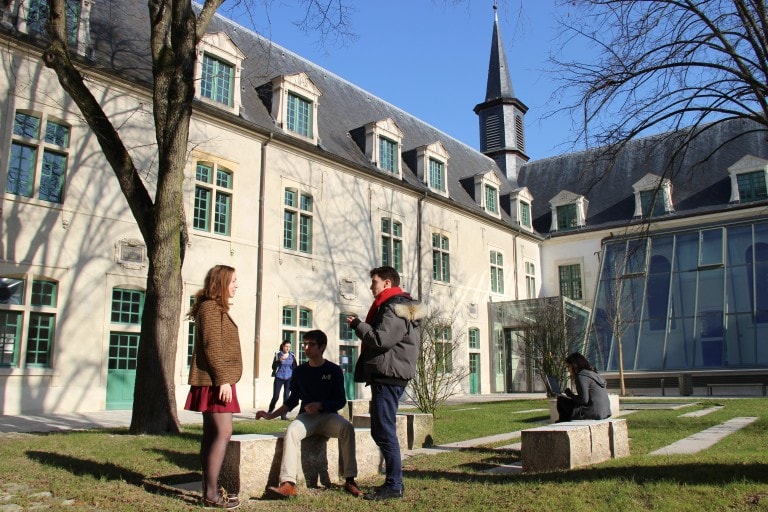By Aristotle Vossos

Image:http://www.sciencespo.fr/newsletter/actu/?id=12325
I’ve often been told that I complain too much. This is most likely a product of my Southern European upbringing. Though opinions differ on whether we should complain—some claim that it is cathartic, others argue that it reinforces neural connections that make us have a negative outlook on life. I am not here to discuss that aspect of complaining, but rather its role at Sciences Po.
As a notorious Sciences Po critic, I’m repeatedly told that I should complain less: “Sciences Po is the best university in France and one of the best in the world. I am so lucky to be able to attend such a prestigious university.”
But the fact that Sciences Po is such a distinguished institution is precisely the reason why we should criticize it. The graduates of this university will go on to become future leaders of French, European, and even global politics. Should they not be accustomed to challenging the status quo? If we are being educated to become these future leaders, the last thing that we should be taught is complacency—accepting the norm and moving on is easy. This leads to little change and no improvement.
Sciences Po’s ‘business model’ has been designed masterfully to encourage this complacency. Two years at one of the seven campuses, followed by a third year in exchange and a possible two year master’s program thereafter. During their first year, students spend most of their time getting used to how things work, and by the time they’re in their second year they know that any possible changes won’t affect them, so why bother? So, one ‘promotion’ after another suffers through bad IPs, unanswered emails from the administration, and disorganized planning. The initial anger at the dysfunctionality into which 1As are thrust fades away as generation after generation of complaining students are pushed into acceptance by being reminded that they are lucky to be at such a prestigious institution, that they should make the most of their time here, and so on.
The arguments that Sciences Po students often give as to why we should not criticize our university are precisely why we should. “You are so lucky to be able to afford the ten thousand euro tuition, others cannot” —and precisely because we are paying such a high price for this education, we should be criticizing Sciences Po’s faults more, not less. “You are looking at this from an American view of what university is like” —and you are looking at it from a French one, what is your point?
The fact that I am criticizing Sciences Po does not mean that I do not value its educational quality nor does it mean that I do not respect it as an institution—were either of these statements true, I would not have chosen to come here. Nor do I expect everyone to constantly criticize Sciences Po. Many students can be perfectly happy with how things are. However, complaining and criticizing the university should never be discouraged. Progress does not occur by disregarding the bad and focusing on the good.
Aristotle Vossos is a second year students who likes to criticize Sciences Po and anything Sciences Po related. When not doing that he likes to criticize France. And when not doing that he’s either drinking or sleeping. The Straight White Male runs one Tuesday every month.
Other posts that may interest you:
- The Trouble with ‘Ecocide’
- Carbon dioxide removal – hit or miss?
- Local Victories for Turkish Opposition — A Sign of Hope?
- Are France and Japan a Mismatch Made in Heaven?
- A Reflection on Dark Tourism
Discover more from The Sundial Press
Subscribe to get the latest posts sent to your email.





